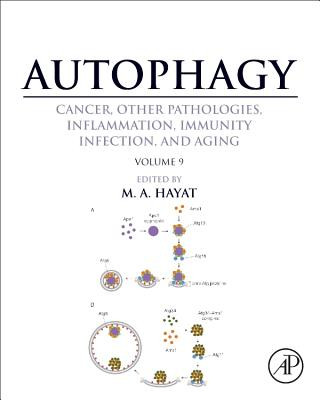
Kód: 02963433
Autophagy: Cancer, Other Pathologies, Inflammation, Immunity, Infection, and Aging
Autor M. Hayat
Understanding the importance and necessity of the role of autophagy in health and disease is vital for the studies of cancer, aging, neurodegeneration, immunology, and infectious diseases. Comprehensive and forward-thinking, these ... celý popis
- Jazyk:
 Angličtina
Angličtina - Vazba: Pevná
- Počet stran: 430
Nakladatelství: Elsevier Science Publishing Co Inc, 2016
- Více informací o knize

Mohlo by se vám také líbit
-

Truth about Romanticism
1259 Kč -

Traffic Theory
5094 Kč -
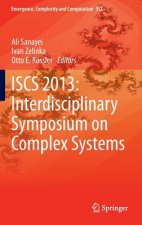
ISCS 2013: Interdisciplinary Symposium on Complex Systems
3313 Kč -

Conversations and Desserts
474 Kč -

Engaging Westminster Calvinism
634 Kč -

Electrokinetic Chromatography - Theory, Instrumentation and Applications
8682 Kč -

Kerma en aire durante el Radiodiagnostico
1833 Kč
Dárkový poukaz: Radost zaručena
- Darujte poukaz v libovolné hodnotě a my se postaráme o zbytek.
- Poukaz se vztahuje na celou naši nabídku.
- Elektronický poukaz vytisknete z e-mailu a můžete ihned darovat.
- Platnost poukazu je 12 měsíců od data vystavení.
Více informací o knize Autophagy: Cancer, Other Pathologies, Inflammation, Immunity, Infection, and Aging
Nákupem získáte 722 bodů
 Anotace knihy
Anotace knihy
Understanding the importance and necessity of the role of autophagy in health and disease is vital for the studies of cancer, aging, neurodegeneration, immunology, and infectious diseases. Comprehensive and forward-thinking, these books offer a valuable guide to both cellular processes while inciting researchers to explore their potentially important connections. Volume 9 Necrosis and Inflammation in Human Diseases emphasizes the role of Autophagy in necrosis and inflammation. This volume also explains in detail the molecular mechanism(s) underlying the formation of autophagosomes, including the progression of Omegasomes to autophagosomes. This information is important because one of the major functions of autophagy is to degrade and eliminate excessive, old, and harmful materials from the cell. Autophagosomes receive these materials (cellular cargo) and transports them to lysosomes for degradation. Lysosomes contain the digestive enzymes (hydrolases) that breakdown proteins, lipids, carbohydrates, etc (self-digestion). To further explain this phenomenon, the role of endoplasmic reticulum (ER) in the formation of autophagosomes will be discussed. ULK1 and Beclin 1 proteins are also important in the initial formation of autophagosomes, which are discussed. Because much of the early research in this area was carried out using yeast cells, the role of Golgi complex in the autophagosome formation in these cells is explained. An explanation of the Role of autophagy related gene ATG5 in cancer (e.g., gastrointestinal cancer) is included. Paradoxically, autophagy is a “double -edged sword”, because it can promote tumor growth, and can be used by intracellular pathogens to multiply and cause infection. Another role of autophagy is that it inhibits chemosensitivity and radiosensitivity in cancer. Considering that autophagy is associated with numerous biological processes including cellular development and differentiation, cancer (both antitumor and protumor functions), immunity, infectious diseases, inflammation, maintenance of homeostasis, response to cellular stress, and degenerative diseases such as Alzheimer’s, Parkinson's, Huntington's, amyotrophic lateral sclerosis, and prion diseases, there is a great need to understanding its role. Cell homeostasis is achieved by balancing biosynthesis and cellular turnover. In spite of the increasing importance of autophagy in various pathophysiological situations (conditions) mentioned above, this process remains underestimated and overlooked. As a consequence, its role in the initiation, stability, maintenance, and progression of these and other diseases (e.g., autoimmune disease) remains poorly understood. Volumes in the Series Volume 1: Molecular Mechanisms. Elucidates autophagy’s association with numerous biological processes, including cellular development and differentiation, cancer, immunity, infectious diseases, inflammation, maintenance of homeostasis, response to cellular stress, and degenerative diseases such as Alzheimer’s, Parkinson's, Huntington's, amyotrophic lateral sclerosis, and prion diseases. Volume 2: Role in General Diseases. Describes the various aspects of the complex process of autophagy in a myriad of devastating human diseases, expanding from a discussion of essential autophagic functions into the role of autophagy in proteins, pathogens, immunity, and general diseases. Volume 3: Role in Specific Diseases. Explores the role of autophagy in specific diseases and developments, including: Crohn’s Disease, Gaucher Disease, Huntington’s Disease, HCV infection, osteoarthritis, and liver injury, with a full section devoted to in-depth exploration of autophagy in tumor development and cancer, as well as the relationship between autophagy and apoptosis. Volume 4: Mitophagy. Presents detailed information on the role of mitophagy, the selective autophagy of mitochondria, in health and disease, by delivering an in-depth treatment of the molecular mechanisms involved in mitophagy initiation and execution, as well as the role of mitophagy in Parkinson Disease, cardiac aging, and skeletal muscle atrophy. Volume 5: Role in Human Diseases. Comprehensively describes the role of autophagy in human diseases, delivering coverage of the antitumor and protumor roles of autophagy; the therapeutic inhibition of autophagy in cancer; and the duality of autophagy’s effects in various cardiovascular, metabolic, and neurodegenerative disorders. Volume 6: Regulation of Autophagy and Selective Autophagy. Provides coverage of the mechanisms of regulation of autophagy; intracellular pathogen use of the autophagy mechanism; the role of autophagy in host immunity; and selective autophagy. Volume 7: Role of Autophagy in Therapeutic Applications. Provides coverage of the latest developments in autophagosome biogenesis and regulation; the role of autophagy in protein quality control; the role of autophagy in apoptosis; autophagy in the cardiovascular system; and the relationships between autophagy and lifestyle. Volume 8: Autophagy and Human Diseases. Reviews recent advancements in the molecular mechanisms underlying a large number of genetic and epigenetic diseases and abnormalities, and introduces new, more effective therapeutic strategies, in the development of targeted drugs and programmed cell death, providing information that will aid on preventing detrimental inflammation. Volume 9: Necrosis and Inflammation in Human Diseases. Emphasizes the role of Autophagy in necrosis and inflammation, explaining in detail the molecular mechanism(s) underlying the formation of autophagosomes, including the progression of Omegasomes to autophagosomes. Presents the most advanced information regarding the role of the autophagic system in life and death and whether autophagy acts fundamentally as a cell survivor or cell death pathway or bothIntroduces new, more effective therapeutic strategies, in the development of targeted drugs and programmed cell death, providing information that will aid on preventing detrimental inflammationStates recent advancements in the molecular mechanisms underlying a large number of genetic and epigenetic diseases and abnormalitiesEdited work with chapters authored by leaders in the field around the globe - the broadest, most expert coverage available
 Parametry knihy
Parametry knihy
Zařazení knihy Knihy v angličtině Medicine Clinical & internal medicine Diseases & disorders
7223 Kč
- Plný název: Autophagy: Cancer, Other Pathologies, Inflammation, Immunity, Infection, and Aging
- Podnázev: Volume 9: Human Diseases and Autophagosome
- Autor: M. Hayat
- Jazyk:
 Angličtina
Angličtina - Vazba: Pevná
- Počet stran: 430
- EAN: 9780128029367
- ISBN: 0128029366
- ID: 02963433
- Nakladatelství: Elsevier Science Publishing Co Inc
- Hmotnost: 1064 g
- Rozměry: 244 × 198 × 27 mm
- Datum vydání: 27. April 2016
Oblíbené z jiného soudku
-
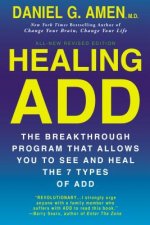
Healing Add
460 Kč -
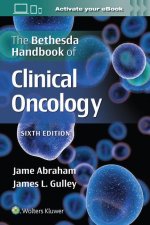
Bethesda Handbook of Clinical Oncology
1835 Kč -

Radical Remission
454 Kč -

Emperor of All Maladies
338 Kč -
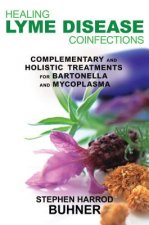
Healing Lyme Disease Coinfections
444 Kč -
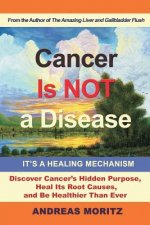
Cancer Is Not a Disease - It's a Healing Mechanism
709 Kč -

Natural Treatments for Lyme Coinfections
424 Kč -
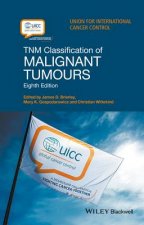
TNM Classification of Malignant Tumours 8e
1293 Kč -
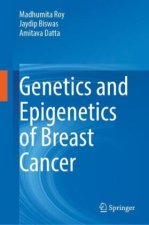
Genetics and Epigenetics of Breast Cancer
4798 Kč -

Gout & Its Cure
132 Kč -
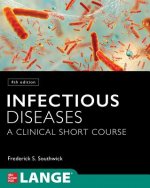
Infectious Diseases: A Clinical Short Course
2368 Kč -

Cancer as a Metabolic Disease - On the Origin, Management, and Prevention of Cancer
3828 Kč -

Comprehensive Review of Infectious Diseases
3368 Kč -

How to Starve Cancer
512 Kč -

Roitt's Essential Immunology 13e
1696 Kč -
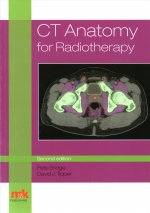
CT Anatomy for Radiotherapy
2388 Kč -
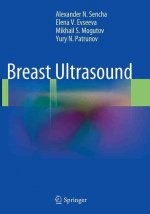
Breast Ultrasound
2532 Kč -

Spillover
313 Kč -
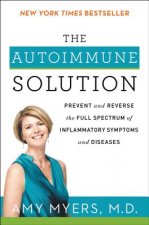
Autoimmune Solution
303 Kč -
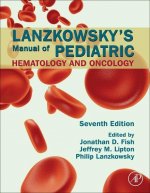
Lanzkowsky's Manual of Pediatric Hematology and Oncology
5498 Kč -

Principles of Gynecologic Oncology Surgery
9095 Kč -
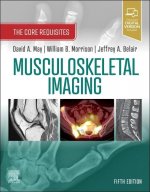
Musculoskeletal Imaging
2305 Kč -

Radiation Oncology Management Decisions
2920 Kč -

Netter's Infectious Diseases
2127 Kč -

Emergency Management of Infectious Diseases
3455 Kč -

Atlas of Contrast-enhanced Sonography of Focal Liver Lesions
2810 Kč -

Color Atlas of Immunology
610 Kč -

Key to Self-Liberation
2314 Kč -
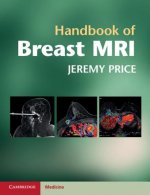
Handbook of Breast MRI
3247 Kč -

Stereotactic Radiosurgery and Stereotactic Body Radiation Therapy (SBRT)
7413 Kč -

Palliative Radiation Oncology
6277 Kč -
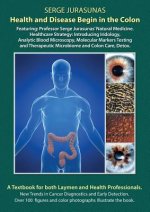
Health and Disease Begin in the Colon
1288 Kč -

Abeloff's Clinical Oncology
11333 Kč -
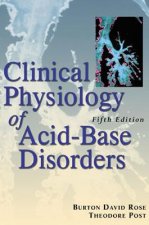
Clinical Physiology of Acid-Base and Electrolyte Disorders
2851 Kč -
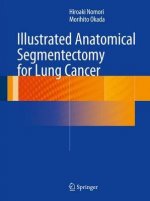
Illustrated Anatomical Segmentectomy for Lung Cancer
4485 Kč -
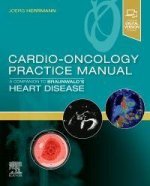
Cardio-Oncology Practice Manual: A Companion to Braunwald's Heart Disease
3632 Kč -
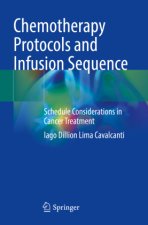
Chemotherapy Protocols and Infusion Sequence
2810 Kč -

Immunology Guidebook
6897 Kč -
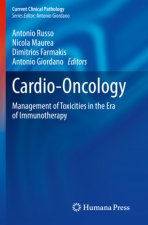
Cardio-Oncology
2810 Kč -

Schaum's Outline of Immunology
756 Kč -
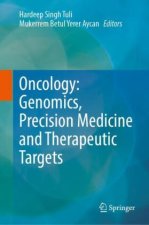
Oncology: Genomics, Precision Medicine and Therapeutic Targets
4798 Kč -

Allergic to Life
1009 Kč -

Oxford Handbook of Infectious Diseases and Microbiology
1212 Kč -

Great Influenza
426 Kč -

Oxford Handbook of Expedition and Wilderness Medicine
1391 Kč -

Cancer and the New Biology of Water
604 Kč -

Everyday Mindfulness for OCD
346 Kč -

Basic Immunology
1771 Kč -

Oxford Handbook of Clinical Immunology and Allergy
1138 Kč
Osobní odběr Praha, Brno a 12903 dalších
Copyright ©2008-24 nejlevnejsi-knihy.cz Všechna práva vyhrazenaSoukromíCookies



 Vrácení do měsíce
Vrácení do měsíce 571 999 099 (8-15.30h)
571 999 099 (8-15.30h)